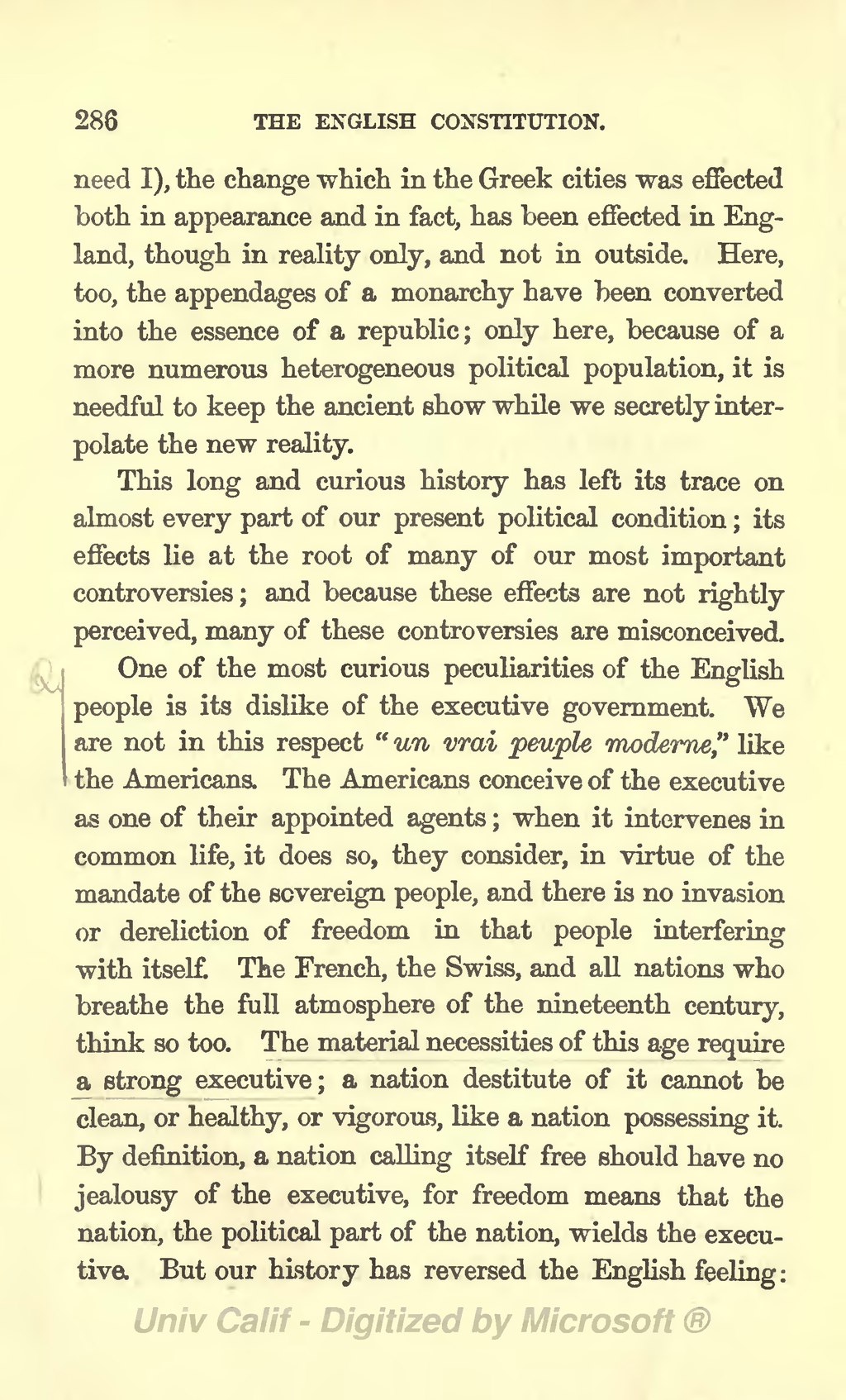need I), the change which in the Greek cities was effected both in appearance and in fact, has been effected in England, though in reality only, and not in outside. Here, too, the appendages of a monarchy have been converted into the essence of a republic; only here, because of a more numerous heterogeneous political population, it is needful to keep the ancient show while we secretly interpolate the new reality.
This long and curious history has left its trace on almost every part of our present political condition; its effects lie at the root of many of our most important controversies; and because these effects are not rightly perceived, many of these controversies are misconceived.
One of the most curious peculiarities of the English people is its dislike of the executive government. We are not in this respect “un vrai peuple moderne,” like the Americans. The Americans conceive of the executive as one of their appointed agents; when it intervenes in common life, it does so, they consider, in virtue of the mandate of the sovereign people, and there is no invasion or dereliction of freedom in that people interfering with itself. The French, the Swiss, and all nations who breathe the full atmosphere of the nineteenth century, think so too. The material necessities of this age require a strong executive; a nation destitute of it cannot be clean, or healthy, or vigorous, like a nation possessing it. By definition, a nation calling itself free should have no jealousy of the executive, for freedom means that the nation, the political part of the nation, wields the executive. But our history has reversed the English feeling:
